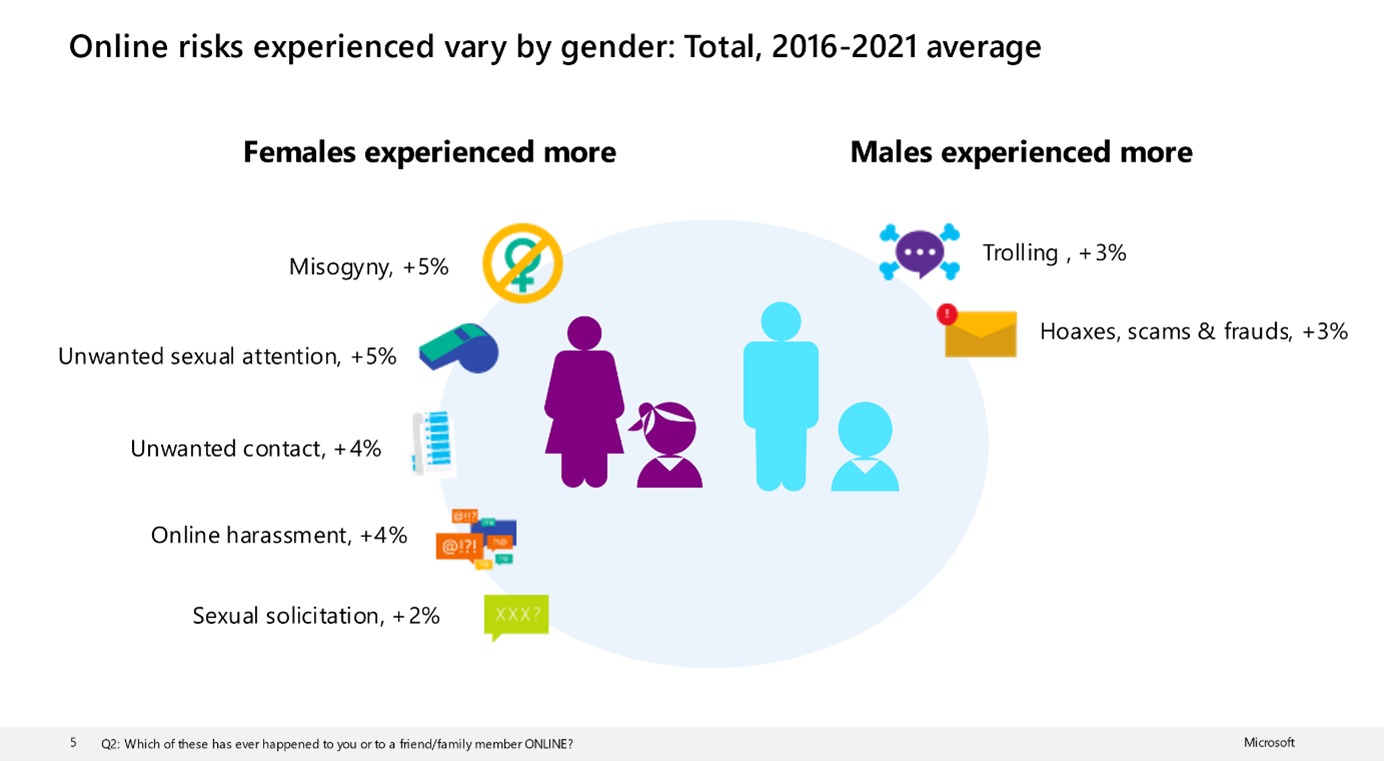As part of international #SaferInternetDay, Microsoft released its annual study, “Civility, Safety and Interaction Online – 2021,” which has been recording data about teens’ and adults’ experiences of online risks for the past six years. The latest study revealed that even though online civility improved in the past year, teen girls and women experienced almost 60% of all risks online, an all-time high. This gender disparity is why for the first time, Microsoft is releasing the underlying data on GitHub disaggregated by gender, so that others may access the data and conduct their own research.
This effort is part of a larger effort by Microsoft to champion the use of data science to tackle gender inequality and to close the data divide. As one of the private sector leaders of the #GenerationEqualityForum, Microsoft recognizes the need to address disparities in the quality, availability, and use of gender-related data. By disaggregating data by gender, surveys can more accurately reflect the different lived experiences of women and girls. Microsoft hopes this will compel others to share their own data sets, research, and findings to address the gender data gap and advance better gender data policies and solutions.
Key findings from the latest results include:
– The share of negative online experiences for teen girls and women respondents has steadily increased since 2018 and currently stands at an all-time high of almost 60%.
– On average, females scored 8-points higher on severe to unbearable pain compared to males.
– As a result of negative online experiences, teen girls and women are significantly more likely to lose trust in others online, have lower self-esteem, and lose sleep.
– Only 44% of females report feeling confident in their ability to manage online risks. This was 14-points lower than males.
Access the data and read the full report here: https://lnkd.in/erw8rx9e
